To provide the best experiences, we use technologies like cookies to store and/or access device information. Consenting to these technologies will allow us to process data such as browsing behaviour or unique IDs on this site. Not consenting or withdrawing consent, may adversely affect certain features and functions.
The technical storage or access is strictly necessary for the legitimate purpose of enabling the use of a specific service explicitly requested by the subscriber or user, or for the sole purpose of carrying out the transmission of a communication over an electronic communications network.
The technical storage or access is necessary for the legitimate purpose of storing preferences that are not requested by the subscriber or user.
The technical storage or access that is used exclusively for statistical purposes.
The technical storage or access that is used exclusively for anonymous statistical purposes. Without a subpoena, voluntary compliance on the part of your Internet Service Provider, or additional records from a third party, information stored or retrieved for this purpose alone cannot usually be used to identify you.
The technical storage or access is required to create user profiles to send advertising, or to track the user on a website or across several websites for similar marketing purposes.
 Members of the British Institute of Facilities Management have today voted to approve its Board’s recommendation to change the Institute’s name to the Institute of Workplace and Facilities Management (IWFM). A Manifesto for Change unveiled by Chairman Steve Roots on 1 March which set out to reframe facilities management by emphasising its ability to make a real contribution to organisations’ performance has been resoundingly supported by members who today voted overwhelmingly to adopt the new name.
Members of the British Institute of Facilities Management have today voted to approve its Board’s recommendation to change the Institute’s name to the Institute of Workplace and Facilities Management (IWFM). A Manifesto for Change unveiled by Chairman Steve Roots on 1 March which set out to reframe facilities management by emphasising its ability to make a real contribution to organisations’ performance has been resoundingly supported by members who today voted overwhelmingly to adopt the new name.









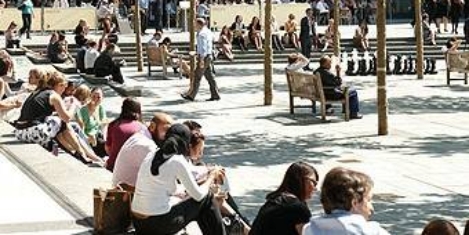
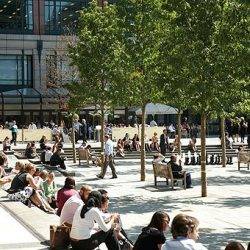
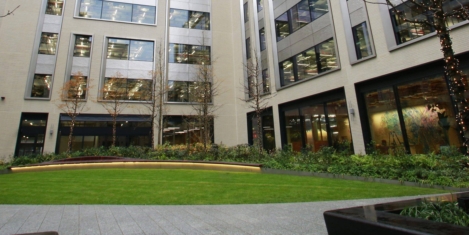
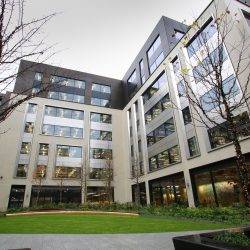

 The majority of employees are disappointed with their company’s lack of investment in technology, and despite the fact three quarters (76 percent) want to request flexible working – almost half still don’t have the option of working more flexibly, a new report from a technology company claims. According to the survey by technology company Ingram Micro Cloud UK, in collaboration with technology company Microsoft, despite the fact that Millennials and Centennials are often thought to be the driving force behind changing workplace practices – and are often derided in popular discourse for having unreasonable and unrealistic expectations – the calls for change are coming from all segments of the workforce. However, 85 percent of Millennials admit to procuring their own workplace technologies such as instant messaging, Skype, file hosting and sharing tools (all available from Ingram Micro Cloud) that aren’t supported or provided by their employer, which raises major security issues, acco.
The majority of employees are disappointed with their company’s lack of investment in technology, and despite the fact three quarters (76 percent) want to request flexible working – almost half still don’t have the option of working more flexibly, a new report from a technology company claims. According to the survey by technology company Ingram Micro Cloud UK, in collaboration with technology company Microsoft, despite the fact that Millennials and Centennials are often thought to be the driving force behind changing workplace practices – and are often derided in popular discourse for having unreasonable and unrealistic expectations – the calls for change are coming from all segments of the workforce. However, 85 percent of Millennials admit to procuring their own workplace technologies such as instant messaging, Skype, file hosting and sharing tools (all available from Ingram Micro Cloud) that aren’t supported or provided by their employer, which raises major security issues, acco.
 Employers with over 250 employees are more likely to have a significant absence issue among staff says new research from Group Risk Development (GRiD). According to HR decision makers companies with over 250 employees have the highest absence rates – averaging 7.5 days per year yet micro businesses with between 1-9 staff only see their staff take an average of 2.8 days absence per year. Five per cent of HR decision makers also admitted to not recording or monitoring absence at all, although this is more prevalent amongst SMEs (6 percent) than those with over 250 employees (1 percent).
Employers with over 250 employees are more likely to have a significant absence issue among staff says new research from Group Risk Development (GRiD). According to HR decision makers companies with over 250 employees have the highest absence rates – averaging 7.5 days per year yet micro businesses with between 1-9 staff only see their staff take an average of 2.8 days absence per year. Five per cent of HR decision makers also admitted to not recording or monitoring absence at all, although this is more prevalent amongst SMEs (6 percent) than those with over 250 employees (1 percent). 


 Built environment organisations are calling for urgent action on issues such as consumption, innovation and infrastructure to prevent the UK slipping behind other nations on poverty, equality and the environment as a new report released today (3 July 2018) highlights the UK’s inadequate performance against the United Nations Sustainable Development Goals (SDGs), including those for the built environment. The report, Measuring up, from the UK Stakeholders for Sustainable Development (UKSSD), is the first comprehensive assessment of the UK’s performance against all 17 SDGs and highlights a significant danger that quality of life in the UK will worsen if action is not taken. Just some of the findings of the report include; that the UK is performing well (green) on only 24 percent of its targets; no industry, innovation and infrastructure targets have achieved a ‘good’ performance rating, with gaps in policy coverage and inadequate or deteriorating performance and large scale, sustained investment in replacing ageing infrastructure and creating additional resilient and low carbon infrastructure of all kinds is required.
Built environment organisations are calling for urgent action on issues such as consumption, innovation and infrastructure to prevent the UK slipping behind other nations on poverty, equality and the environment as a new report released today (3 July 2018) highlights the UK’s inadequate performance against the United Nations Sustainable Development Goals (SDGs), including those for the built environment. The report, Measuring up, from the UK Stakeholders for Sustainable Development (UKSSD), is the first comprehensive assessment of the UK’s performance against all 17 SDGs and highlights a significant danger that quality of life in the UK will worsen if action is not taken. Just some of the findings of the report include; that the UK is performing well (green) on only 24 percent of its targets; no industry, innovation and infrastructure targets have achieved a ‘good’ performance rating, with gaps in policy coverage and inadequate or deteriorating performance and large scale, sustained investment in replacing ageing infrastructure and creating additional resilient and low carbon infrastructure of all kinds is required.

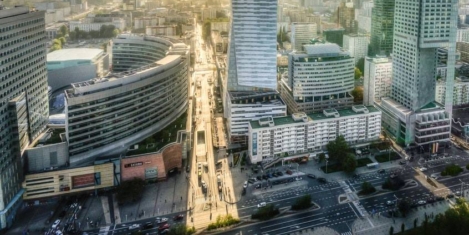
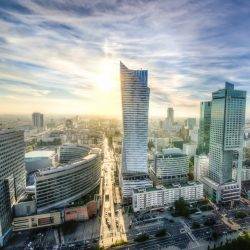

 A major global report has revealed a lack of confidence in data is limiting corporate success in the emerging era of robotics and automation. The global research launched by Qlik, has revealed an escalating skills gap preventing business decision-makers asking the right questions of data and machines. Despite
A major global report has revealed a lack of confidence in data is limiting corporate success in the emerging era of robotics and automation. The global research launched by Qlik, has revealed an escalating skills gap preventing business decision-makers asking the right questions of data and machines. Despite 







